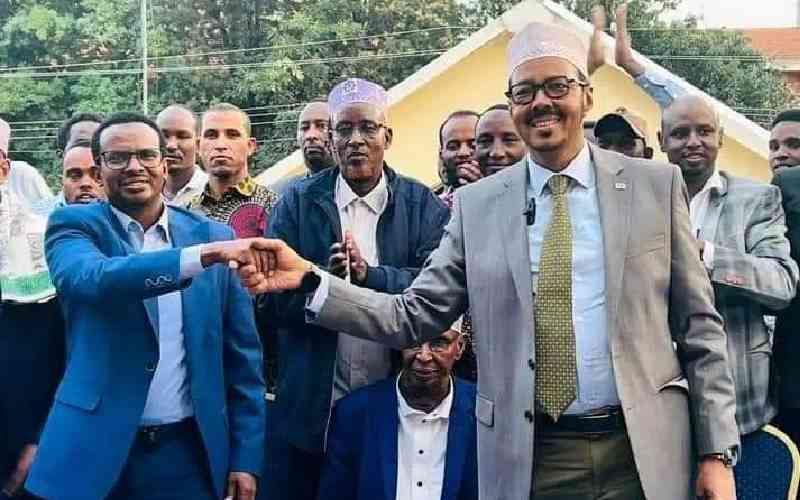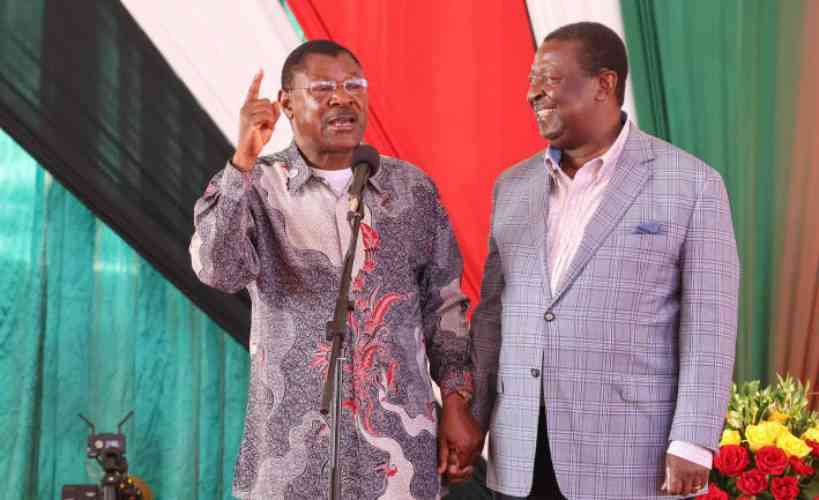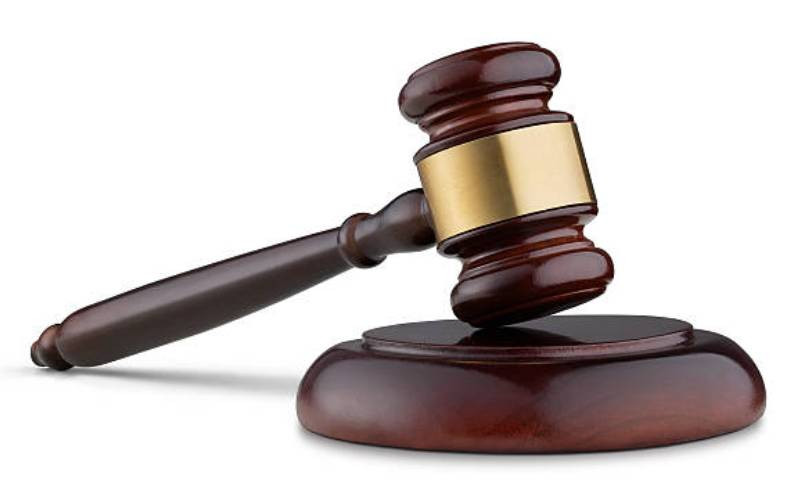By Otuma Ongalo
If it was ever in doubt the real motive of ministers and MPs who gathered this week to ostensibly raise funds for Mau forest complex evictees, the doubt was no more at the end of their meeting.
Mau evictees were mere smokescreens and their woes provided invaluable ammunitions in a battle for political supremacy ahead of the 2012 elections. Assistant Minister Kareke Mbiuki let the cat out of the bag when he said those in the gathering were destined for bigger things and would be in Government in 2013 while minister Najib Balala declared it was the team to watch.
Prime Minister Raila Odinga will be the man to beat for the top seat come 2012 elections and Mau saga is merely a proxy war between him and other equally ambitious leaders such as Kalonzo Musyoka, Uhuru Kenyatta, and William Ruto.
The three, who are believed to be nurturing KKK (Kikuyu, Kalenjin and Kamba) alliance, have little, if any, sympathies over the tribulations of the Mau evictees. They are Cabinet members and they are not on record having voiced concerns when the Mau conservation issue was discussed in their meeting. Anything that is likely to be credited to Raila is bound to raise discomfort among the triumvirate.
The Mau preservation is one such issue. Although it was endorsed by MPs, the Cabinet and even President Kibaki, Raila is the face of the initiative. There being no saints in Kenya’s politics, he too could be using the Mau as a political trump card. The difference, however, is that he is pursuing an initiative that portrays him as a nationalist and visionary while his critics emerge as shortsighted populists.
It is not lost to a discerning mind that Ruto, Kalonzo, and Uhuru are among Raila’s greatest political opponents and Balala has joined the bandwagon. For Ruto, the battle for Rift Valley supremacy remains unsettled despite enjoying a sizeable loyal following. If there is anyone between him and Rift Valley kingship, it is Raila and the sooner his political fortunes crumble the merrier for Ruto.
Whether real or farfetched, Ruto has always claimed credit for Raila’s impressive performance in the region during the 2007 presidential elections. This is a fact Raila has refused to acknowledge. The PM’s apparent soft spot for Musalia Mudavadi — who critics think has not made major contributions in ODM’s fortunes — further rubs Ruto the wrong way.
Although it might be rightly so, Ruto must be a bitter man that his fervent support for Raila during the presidential elections has come to haunt him alone as the latter enjoys trappings of power. Raila has never strongly supported Ruto against claims that he played a role in post election violence. He has been fighting a lone battle, including the ongoing bid to have his name expunged from a KNCHR report mentioning him adversely.
Uhuru, on paper, is Raila’s deputy but there has never been political chemistry between the two since Raila shattered his brightest chance ever for presidency when he declared "Kibaki Tosha". That Uhuru was one of the ministers in an explicitly anti-Raila forum was not a coincidence. The recently found warm relationship between Kibaki and Raila could be sending shivers down Uhuru’s spine in his quest to inherit the president’s political mantle in
Central Province.
Perhaps the greatest high profile rivalry, if not animosity, lies between Raila and Kalonzo. Although he did not attend the fundraising — after allegedly being prevailed upon by the President — his lieutenants did and conveyed his blessings. It is not that Kalonzo is a threat to Raila. The PM considers the VP a betrayer — first when he bolted from ODM and for joining Kibaki to form government at a time he was involved with Raila in a bitter election dispute.
 The Standard Group Plc is a
multi-media organization with investments in media platforms spanning newspaper
print operations, television, radio broadcasting, digital and online services. The
Standard Group is recognized as a leading multi-media house in Kenya with a key
influence in matters of national and international interest.
The Standard Group Plc is a
multi-media organization with investments in media platforms spanning newspaper
print operations, television, radio broadcasting, digital and online services. The
Standard Group is recognized as a leading multi-media house in Kenya with a key
influence in matters of national and international interest.
 The Standard Group Plc is a
multi-media organization with investments in media platforms spanning newspaper
print operations, television, radio broadcasting, digital and online services. The
Standard Group is recognized as a leading multi-media house in Kenya with a key
influence in matters of national and international interest.
The Standard Group Plc is a
multi-media organization with investments in media platforms spanning newspaper
print operations, television, radio broadcasting, digital and online services. The
Standard Group is recognized as a leading multi-media house in Kenya with a key
influence in matters of national and international interest.







